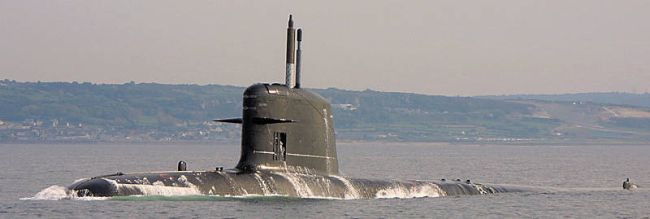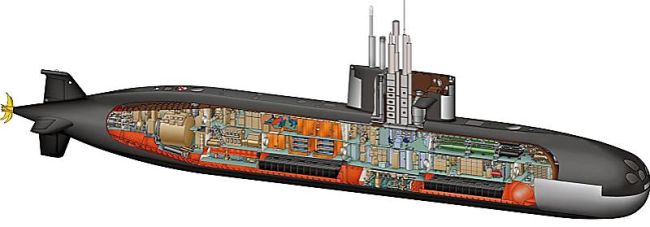WASHINGTON, June 12, 2012 — Defense Secretary Leon E. Panetta delivered keynote remarks during the 31st Annual American Turkish Council Conference dinner here last night reaffirming the U.S.-Turkish alliance and pledging further support for shared security goals.
 |
| Here you can find more information about: |
“As some of you may know, I’ve just returned … from a nine-day trip to the Asia-Pacific region,” Panetta said. “The main purpose of it was to explain the new defense strategy … to our allies and to our partners throughout the region. In many ways, my appearance here tonight continues that mission.”
The defense secretary reflected on the “historic” U.S.-Turkey alliance, and noted 2012 marks 60 years since Turkey joined NATO.
Through this alliance, and a bilateral military relationship, Turkey and the U.S. have built “strong cooperation and connections” across their armed services, Panetta said.
“Our troops fought alongside each other in the Korean War, our troops helped stem the bloodshed in the Balkans, and they worked together to protect the Libyan people as they stood up to a brutal dictator,” Panetta noted.
“Just as critically, Turkey continues to make vital contributions in Afghanistan, where more than 1,200 Turkish forces are currently deployed,” he said. “We deeply appreciate the determination and resolve of the Turkish people to assist the international military effort, even in the face of the challenges that we have to confront, and even in the face of tragedy.”
Panetta said he was “deeply saddened” by news of a March 16 Turkish helicopter crash in Kabul, Afghanistan, which killed 12 Turkish soldiers.
“In the aftermath of that tragedy, Turkey stayed focused on the mission,” he said. “In the lead-up to the Chicago Summit, Turkey played a leading role within NATO to ensure that we affirmed our enduring commitment to the security and stability of Afghanistan.”
“Just as Turkey has shared in the effort to deny al-Qaida and its militant allies safe haven in Afghanistan, the United States has expressed its strong solidarity in Turkey with their fight against the PKK,” he said.
Panetta assured attendees his discussions with his Turkish counterparts have been clear in the commitment to continue helping Turkey counter the PKK “threat.” The Kurdistan Workers’ Party, also known as the PKK, is a terrorist group that has been fighting the Turkish government since 1984.
“I’ve reiterated, obviously, our long-term view, that military force, alone, while important, cannot solve this problem,” Panetta said. “There should be a political process involved as well. But let me be clear — so long as the PKK threatens Turkey and threatens its people, we will continue to provide Turkey with the capabilities needed to counter that threat.”
“Our shared commitment to these efforts reflects our shared aspiration for a peaceful, stable and prosperous future for our children, and our shared values as two democracies,” he said.
Panetta said as some threats recede, more arise such as violent extremism, destabilizing behavior from Iran and North Korea, rising powers in the Asia-Pacific region, turmoil in the Middle East and North Africa, and challenges in the cyber domain.
Panetta said as the U.S. deals with these challenges and fiscal pressures requiring nearly half a trillion dollars in budget cuts over a decade, the Defense Department is putting forth a new defense strategy.
“[This] strategy recognizes ‘yes’ we’re going to be smaller, we’ll be leaner, but we have to be agile, we have to be flexible, we have to be quickly deployable, we have to be on the cutting edge of technology for the future,” he said. “We recognize that the Asia-Pacific and the Middle East are where the most pressing security challenges lie, and we must increase our focus on these key areas.”
Panetta said the strategy recognizes the need to maintain a U.S. presence throughout the world with “innovative rotational deployments that emphasize alliances” and new partnerships, and investments in the realms of cyberspace, unmanned systems, special operations forces, and the ability to mobilize quickly.
The defense secretary noted as part of this effort, the U.S. also wants to encourage nations like Turkey “whose values we share” to help advance peace and security in these regions.
“As part of a shared vision for security and stability in the Middle East, the United States strongly supports Turkey’s growing and vital leadership role as a prosperous, democratic nation that is an anchor of security, and an engine of growth for the region’s economy,” Panetta said.
“Together, Turkey and the United States are working closely to support the historic wave of democratic change that is sweeping the Middle East and North Africa,” he added.
Turkey and the United States, Panetta said, are confronting nations blocking change and destabilizing behavior in the region such as Syria and Iran.
The defense secretary said the U.S. and Turkey will continue to work together with the international community to bring pressure on Syria and Iran, because “there is no silver bullet here.”
“We are more effective in achieving that objective when the international community stands together as one,” Panetta said.
Panetta also stated he believes Turkey has an important leadership role in solving future security challenges as part of NATO Force 2020.
Through the decades, Panetta said, the partnership between the American and Turkish people has grown stronger, and the two nations have been made stronger and more prosperous because of it.
The challenges and threats both nations face today are complex, dangerous, and destabilizing, he said.
“But our two nations understand that in that kind of world, nations that have common values and are not afraid to lead will prevail,” Panetta said.
Source:
U.S. Department of Defense
Office of the Assistant Secretary of Defense (Public Affairs)

 von
von 
